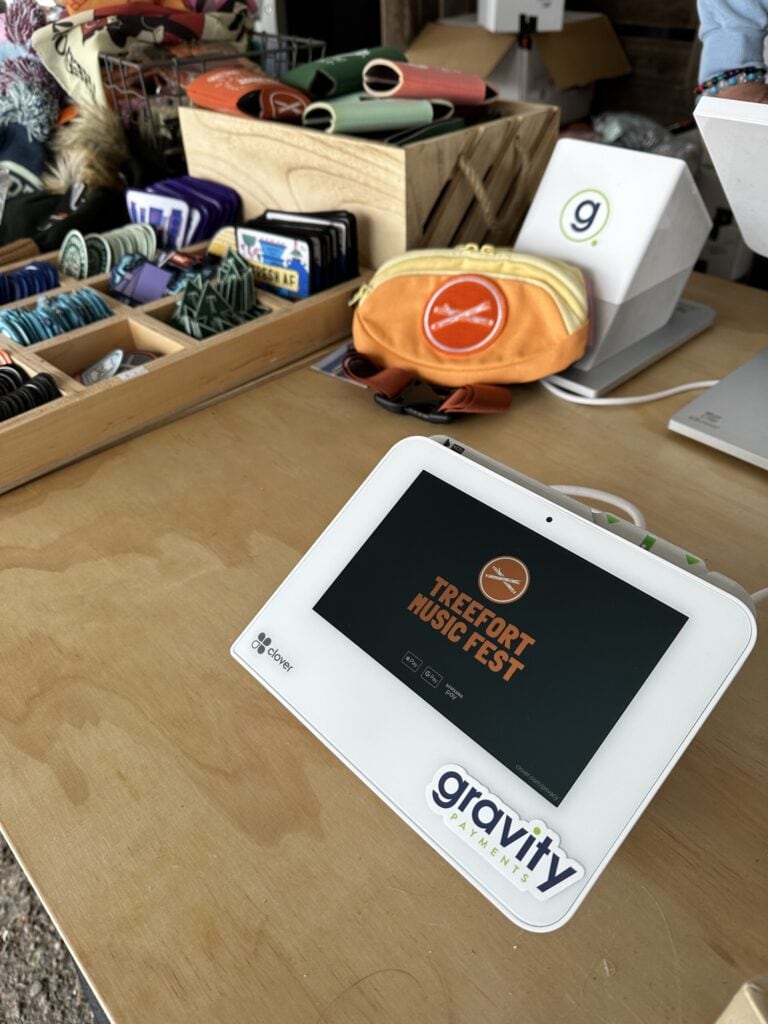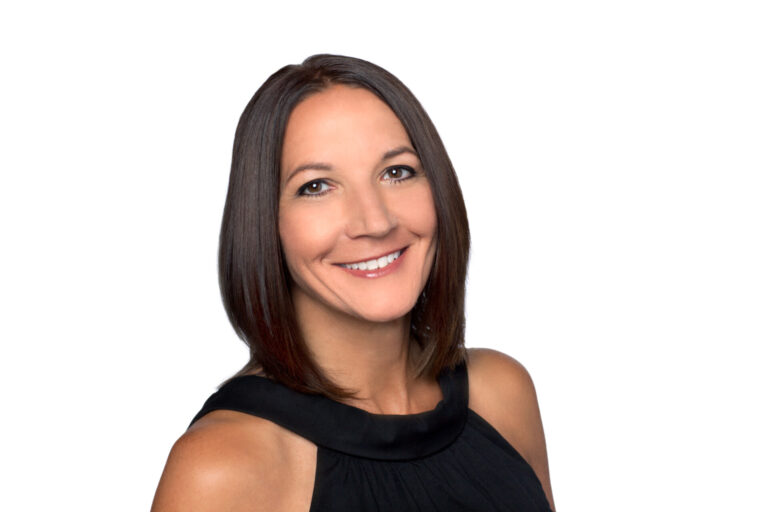Our Faith, Beliefs, and Values blog series seeks to highlight Gravity employees who bring strong personal values systems–whether religious, cultural, political, or otherwise purpose-driven–to their life and work. At Gravity, we strive to create an environment in which all employees feel like they can be themselves and their convictions are respected. The opinions and views expressed are the employee’s own and do not reflect the views of Gravity as a company.

Last year, after Gravity Payments moved to its new, custom-built office space in the up-and-coming Ballard district of Seattle, billing specialist Nelson Pfab noticed something different about their commute. Not only did they have to adjust to a new route to and from work each day, they also began to take more notice of what they passed along the way. “In driving to work through the entire city, I see a lot of homeless encampments,” they say. “And then I arrive at work at this brand new building that has apartments that even we, as employees working in this building, cannot afford.”
The juxtaposition between working in a swanky new office space and driving past people living on the fringes of society perfectly illustrated the growing income disparity Nelson had witnessed as a lifelong resident of the Seattle area. It’s been well documented that Seattle is one of America’s fastest-growing cities, with mega-corporations like Amazon, Microsoft, Starbucks, and Boeing bringing well-paying jobs to the area. Less discussed are the thousands of people who have been negatively impacted by the influx of new arrivals or the fact that, despite the city’s wealth, Seattle has the third-highest homeless population in America, behind New York and Los Angeles.
Growing up, Nelson says they paid little, if any, attention to homelessness or income inequality because it didn’t affect them on a daily basis. The only child of a father who worked as a warehouse manager and a mother who ran an in-home daycare service, Nelson was raised in a modest but comfortable household where they took for granted the fact that their family would always have a roof over its head and food on the table. “For me, it was really hard to have any sort of political viewpoint because I grew up lower-middle class and white in the suburbs of the west coast,” they say. “Hot-button issues didn’t really affect me. I felt pretty comfortable. I witnessed my entire family being relatively successful and not struggling throughout my whole adolescence.”
Get the Gravity newsletter for the latest FAQs, tools, tips and tricks
Things changed when Nelson moved into the city at age 18 and began working in a coffee shop downtown. “In working there, I served well-off people from all over the city, but then I also interacted with a transient population who were our neighbors,” they say. “In getting to know these folks and coming to understand the dynamics of working for a corporate business while also trying to be a good neighbor to the people who just needed access to some of the resources we had–whether that was a cup of water or use of a bathroom–I started to see that people aren’t homeless because they made a lot of bad decisions. People aren’t addicted to substances because they made bad decisions. And regardless of whatever decisions people have made, they’re still people who are worthy of us acknowledging their existence.”
This experience gave Nelson a perspective they hadn’t had as a child and had a profound impact on how they came to view the world and how our society functions. “I didn’t grow up in a political family,” they say. “I didn’t grow up in a family that talked about systems that were oppressing people and our roles in those systems. So, until moving to the city, I was just in this bubble of believing everybody who lives in the suburbs is well off enough to pay their bills and put food on the table, and that includes me.” Upon seeing first-hand how a large segment of the population lacks this basic financial security, Nelson began to become an outspoken advocate of economic equality.
“We live in a capitalist society, and if people don’t have money, they don’t have access to the resources they need to physically survive,” they say. “We have a lot of really wealthy people who live in Seattle, and we have even more people who have no money and nowhere to live. And then there’s a lot of people in between who are in various positions of wealth and resource security. The sheer number of people who are barely surviving far outweighs the few who are making so much money that they’re (literally) shooting it into space.”
Nelson left the life of a barista behind them and joined Gravity in 2013. Two years later, when CEO Dan Price announced the decision to raise the company’s minimum wage to $70,000 a year, Nelson was both appreciative and thoughtful. “I see my involvement in receiving the $70k announcement as kind of like winning the lottery,” they say. “I don’t necessarily subscribe to the belief that any of us are worth $70k or not worth $70k. For me personally, I was in the right place at the right time because I have a CEO who felt like it was time to do what a lot of companies aren’t doing, and that’s just paying their people fairly. His doing that has allowed me to take a step back and analyze my background and the backgrounds of the people who are in my life outside of Gravity and see that everybody should be able to have a comfortable living salary. I want everybody in my life to have what I have.”
As for how to achieve full societal financial stability, Nelson admits they don’t have the answers, but they think both businesses and governments should play a role. “I believe we live in a time where there’s a lot of money, and it’s sitting in these deep reservoirs and it’s not reaching the people who need it. And the more we can disrupt that and the more that we can spread that wealth out, the better for all of us.”
According to Nelson, one possible step forward, at least in Seattle, is the newly proposed Employee Hours Tax, which would levy a tax on large companies based in the city in an effort to raise money for affordable housing and homelessness relief. The measure, which would tax corporations based on the number of employees they have in Seattle, has raised a lot of controversy within the Seattle business community, with several large companies, including Amazon and Starbucks, voicing their opposition. But Nelson thinks it’s time the same companies responsible for driving up housing costs in the city helped even the playing field. “The EHT seems like a reasonable and responsible thing for businesses that make a ton of money to want to sign up for, especially considering that one of the reasons we’re in this housing crises is because we’re moving in a bunch of people from all over the country and we’re displacing the people that have lived here their entire lives. People are moving here for tech jobs and jobs that pay fairly well. It feels obvious to me that businesses should be doing their part to combat this problem that they’re helping to perpetuate.”
Seeing an opportunity to exert some influence in the fight for equality, Nelson brought the tax proposal to the attention of Dan after crunching the numbers on how the tax would impact Gravity. An outspoken proponent of business being a vehicle for social change, Dan agreed to write an op-ed endorsing the measure for the local Seattle publication, The Stranger.
Even if the proposal passes, though, Nelson believes we have a long way to go before we see true equality, and they will continue to support measures–from the public or private sector–that seek to address the inequities in our system. For their own part, Nelson still doesn’t consider themself to be very political and prefers to advocate for causes they consider important among their inner circles as opposed to through more formal or public advocacy. But that doesn’t stop them from dreaming big. Nelson has gone on record with friends and family about their vision for a perfectly equitable society, one in which automation makes it possible for the economy to support everyone without anyone needing to work. If people didn’t need to worry about making money, Nelson believes we would all be better off.
“It’s hard to say what this world would look like because it’s hard to know what would be important to people once we take the need to make money off the table,” they say. “I want to live in a world where everybody makes enough to live a fulfilling life, whatever that looks like to them. And I think we would find that the vast majority of people would be happy with having their medical bills taken care of, having food on the table, and being able to take vacations and explore and focus on the things that really enrich our lives. I don’t think we would see as many people living their ideal life as a yacht-owning jet-setter, prioritizing things that would require a lot of money. I think when we get down to it, people just want to be comfortable and want to have a thriving life, and that doesn’t necessarily mean a luxurious life. If you take away those material possessions, then I would hope there would be a greater focus on how we can be better people in our bodies and in our communities.”
Until the day machines make it possible for them to not work anymore, Nelson is content to work at Gravity where they say they are free to voice their views, especially when it comes to company policy. For example, in addition to encouraging Dan to support the EHT, Nelson helped lead the charge to train the Gravity staff on gender and pronoun usage after deciding to adopt gender-neutral pronouns in their own life. “I think my perspective on society as a whole is really welcomed here even if it’s different or the polar opposite of the median viewpoint,” they say. “I think the company knows that any agenda I’m trying to push or anything that I’m pushing back on is purely from a place of ‘we can absolutely do better.’ And doing better means changing stuff up. We’re not going to keep doing the same things, expecting better results. It means, ‘No, we’re going to do radically better.’ That is something that I’ve really come to understand is valued in my presence here.”
By Brooke Carey, Content Editor




